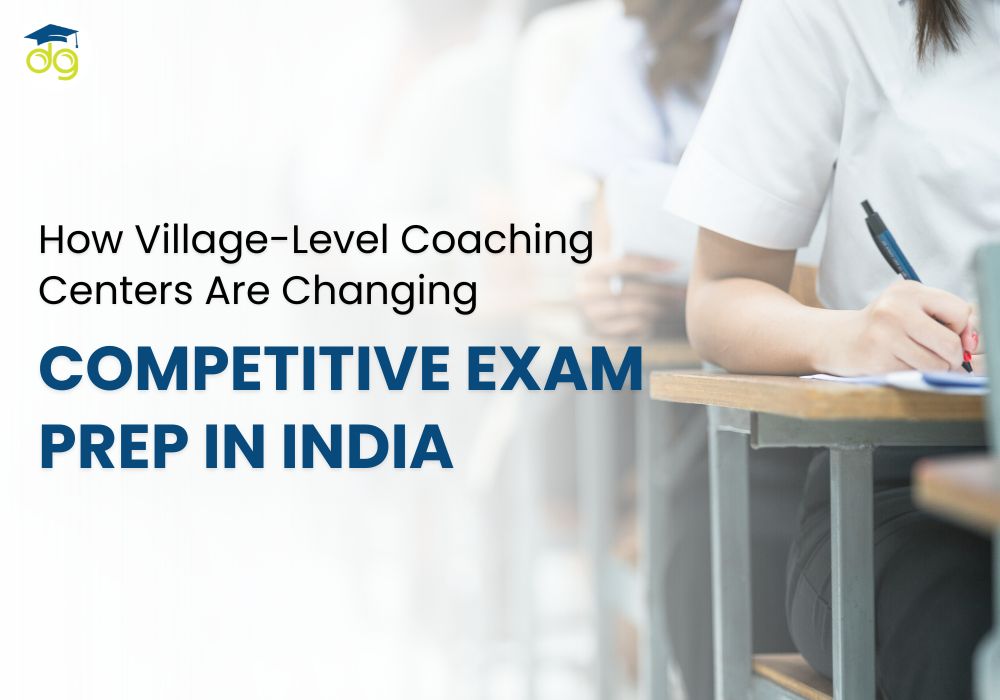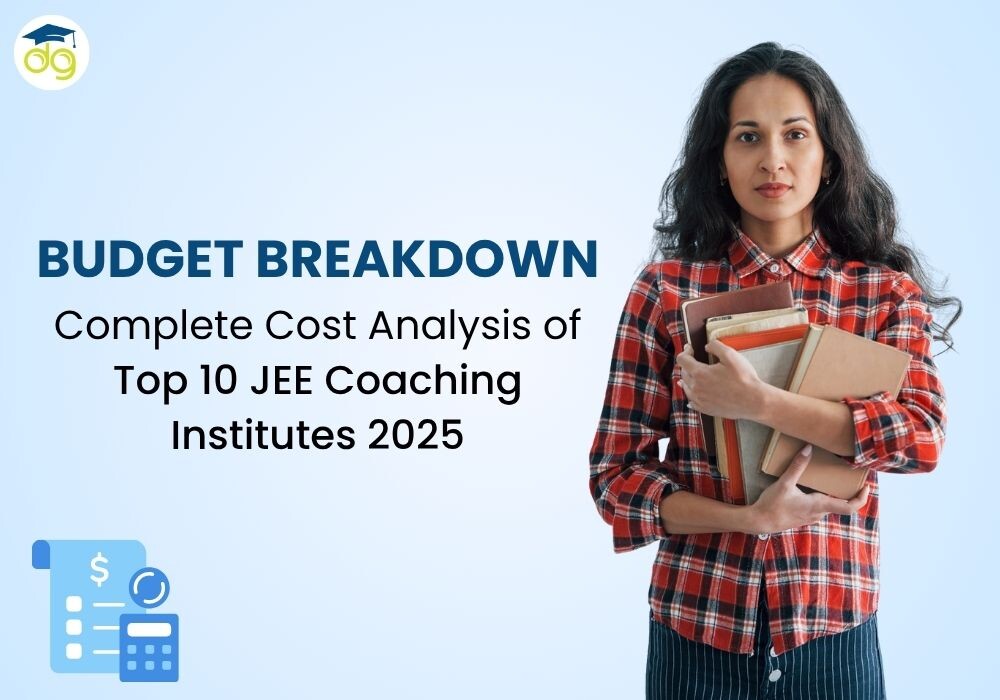Most Important and Scoring Topics for JEE: Complete Student Guide
Crack JEE with Confidence: Focus on These High-Scoring Topics for Success
The JEE is one of the toughest and most prestigious entrance examinations for those who wish to pursue engineering in India. These are split into two major sections-the JEE Main and the JEE Advanced. Former is a qualifying test for the latter. Both exams test knowledge on three core subjects: Physics, Chemistry, and Mathematics.
JEE Main: Primarily it is meant for admission to NITs, IIITs and other central universities.
JEE Advanced: More challenging test to seek entry to IITs
With this cutthroat competition in the exam, a student needs to be extra cautious while devising his or her preparation plans. It can help raise the probability of a better rank with the focus on topics with high weighting and scoring.
Choice of Suitable Topics to Focus upon
The secret of productive preparing depends upon the right topics where their focal point lies. Doing that can best allow the students to put all efforts into gaining optimum scores through focusing on certain key areas that frequently seem in both JEE Mains as well as Advanced. It keeps assurance over time management while avoiding excess stress, promising to carry proper performance during the time of exams.
2. JEE Preparation General Tips:
It would be better to understand what's the core concept of those high-weightage topics rather than trying to learn everything about all the topics. Balancing all the three subjects - Physics, Chemistry, and Mathematics - is a must thing. Don't neglect any single subject as each one provides for a significant amount towards your total score.
Time Management
Proper time management during the time of preparation for JEE can be helpful. A candidate needs to prepare a study time table and dedicate individual slots for every subject. Adding a few small breaks can improve focus and productivity for a candidate.
Past Year Trends
Most importantly, past years' question papers are to be considered for important topics. Students would be able to find recurring themes and questions repeated again and again that would help them know where to focus. In fact, a lot of JEE aspirants agree that solving past year papers gives them a sense about the exam pattern and consequently sends up their confidence.
3. Most Important and Scoring Topics in Each Subject
Physics
Mechanics (Kinematics, Laws of Motion, Work-Energy, Rotational Motion)
Mechanics is a full-scoring section, especially for JEE Main and Advanced exams. Students should be absolutely clear about Newton's laws, conservation of energy and the concept of rotational motion. There are many problems in every exam that are based upon these topics.
Electrodynamics (Electrostatics, Current Electricity, Magnetism)
Electrostatics as well as current electricity is very recurrent in JEE Main and Advanced, Magnetism carries a huge weightage though it is a tad harder. In this respect, complete practice of numericals is very helpful if done with an overall conceptual grasp.
Optics & Modern Physics
Both these streams are easier, most probably scoring ones. Refraction, diffraction, and photoelectric effect-related concepts have to be definitely included in the study materials
Thermodynamics & Waves
Thermodynamics appears very frequently and understanding first and second laws of thermodynamics would easily fetch a good number of marks. Waves, particularly sound waves and oscillations are basic and not that complicated.
Gravitation
Gravitation appears relatively less, but in both JEE Main and Advanced, gravitation keeps popping up. Universal gravitation and Kepler's laws can be attempted without much hassle if understood properly.
Chemistry
Physical Chemistry (Mole Concept, Chemical Kinetics, Thermodynamics, Solutions)
Physical Chemistry is generally easier and good on the points. Once you get the hang of what a mole is and a few key laws about chemical kinetics, thermodynamics, and solutions, you'll find it easier to solve problems.
Organic Chemistry (Hydrocarbons, Aldehydes, Ketones, Carboxylic Acids, Isomerism).
Inorganic Chemistry (Coordination Compounds, Periodic Table, Chemical Bonding, p-block elements)
Inorganic Chemistry seems to be very vast but core concepts like periodic trends, bonding theories, and important elements ensure good marks. Coordination compounds and p-block elements are frequently tested.
Qualitative Analysis
Qualitative analysis tests your ability to identify ions through various chemical reactions, a very important chapter for JEE Main. Practice of reactions and mechanisms in qualitative analysis will help a lot in preparation.
Mathematics
Algebra (Quadratic Equations, Complex Numbers, Permutation and Combination)
Algebra is one of the most scoring topics in JEE. Topics like quadratic equations, complex numbers, and permutation and combination are important and relatively easier to grasp.
Calculus (Differentiation, Integration, Limits)
Calculus
Mathematics is a backbone for both JEE Main and Advanced. Differentiation, integration, and limits are some of the utmost critical things that should be practised well to solve complex problems in both the exams.
Coordinate Geometry (Straight Lines, Circles, Parabolas)
Coordinate geometry is a relatively easy yet scoring topic. Practice and master the equations of straight lines, circles, and parabolas because most questions around this are formed on these concepts.
Vectors and 3D Geometry
Vectors and 3D geometry are common in most of the paper, and the basic vector algebra, also along with coordinate systems, can go a long way in enhancing the problem solving skills.
Trigonometry (Trigonometric Equations, Identities)
It is a must with trigonometric identities, equations and transformation questions appearing rather frequently. It is one of the most scoring areas if approached regularly with good practice.
4. Conceptual Clarity
Conceptual Foundation: Students must look for developing a robust conceptual foundation. Though memorization of formulas and facts may come in handy in the short term, understanding the underlying principles forms the basis for better problem-solving and adaptability during exams.
Application of Concepts: Understanding the theory alone is not sufficient; students need to be able to apply these concepts while solving complex problems. Practice is the way forward, it is thereby helping to recognize patterns and speed.
5. Study Plan for Scoring Topics
Study Time Table
Spend more hours on scoring topics, but not neglect others. A good study time table must provide a good amount of theory, practice, and revision of crucial topics. Here's a simple weekly plan for focus:
Day on weekdays: 4-5 hours, concentrate on one subject.
Weekends: 6-8 hours, previous years' papers, mock tests, and revision.
Constant practice through problem-solving, mock tests, and sample papers helps firm up concepts and speed.
Regularly keep track of your progress to flag weak areas.
Use the Pomodoro technique: study for 25 minutes and take a 5-minute break to keep yourself focused and avoid burnout
6. Resources to Prepare
Books
Physics: H.C. Verma's Concept of Physics and I.E. Irodov (for advanced problems)
Chemistry: O.P. Tandon for Physical Chemistry, M.S. Chauhan for Organic Chemistry, J.D. Lee for Inorganic Chemistry
Maths: R.D. Sharma for basics, Cengage series, I.A. Maron for Calculus
Online Resources
All platforms covering a wide number of video lessons, test series are available on facilities offered in Khan Academy, Vedantu, Unacademy and BYJU's so strengthening the concept and effective strategy towards the exam.
Coaching provides systematic support and feedback from an expert, while self-study provides more room for flexibility and independence, and the choice depends more on the learning style and one's own discipline.
8. Conclusion
Preparing for the JEE is incredibly challenging but not impossible. Focus on learning the important things, and stick to your routine study plan. Believe in yourself, and you will do it. Do not lose concentration and stick to your goals. Just keep checking your progress over time.
Preparation for JEE can be gruelling, but managing stress is the most important thing. Regular breaks, proper sleep, and light physical activity keep both the mind and body healthy.
Revision has to be carried out on a regular basis, particularly for formulae, equations, and vital concepts. Use quick reference notes and flashcards for quick revisions.
Remind yourself always that you are certain to conquer the JEE exam by appropriate strategy and effort to be enrolled in your dream engineering institute.
Visit Skoodos Bridge to get more information on JEE.
FAQ
Which subjects should I focus on the most for JEE preparation?
Physics, Chemistry, and Mathematics contribute to your score; hence, I must focus on scoring topics in each subject as outlined in this guide, but I should not neglect any subject.
How much time should I give daily for JEE preparation?
Study for at least 4-6 hours with focused attention in a day, and increasing study time closer to the date of the examination. Reserve some part of the time schedule for practice and mock tests.
Do I need to join coaching to prepare for JEE?
Good coaching can be helpful, but by discipline and with good self-study resources; you do not have to join any coaching for preparing for JEE. Many students do well without joining coaching. They make optimum use of available online platforms and good reference books.
How can I deal with stress while preparing for JEE?
Practice relaxation techniques, short breaks, healthy diet, and regular physical activities to gain an edge over stress.
When to Revise for JEE?
Ideally, one should start preparing or revising 2-3 months before the exam. Revise key concepts and formulas regularly and also refer to previous year's question papers for a better retention.
Categories
Archives
- November 202512
- October 202521
- September 202520
- August 202522
- July 202524
- June 202524
- May 202526
- April 202530
- March 202523
- February 202513
- January 202523
- December 202429
- November 20246
- September 20245
- August 202422
- July 202415
- May 20249
- June 202424
Similar Posts

Voice-Based Learning Apps: The New Trend in Exam Preparation
by Skoodos Bridge

Top Untapped Indian Cities Ideal for Niche Exam Coaching Institutes
by Skoodos Bridge

Hostel vs PG vs Rent: Best Stay for Coaching Students in India
by Skoodos Bridge

Village Coaching Centres Transforming Competitive Exam Prep in India
by Skoodos Bridge

Gamification Psychology: Transforming Exam Preparation into Play
by Skoodos Bridge

Time Zone Study Scheduling for Indian Students in Global Coaching
by Skoodos Bridge

Parent Communication Strategies for Managing Exam Family Pressure
by Skoodos Bridge

Budget Breakdown: Cost Analysis of Top JEE Coaching Institutes 2025
by Skoodos Bridge

Color Psychology in Note-Taking for Better Memory and Learning
by Skoodos Bridge


Leave a Comment